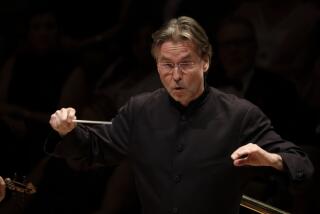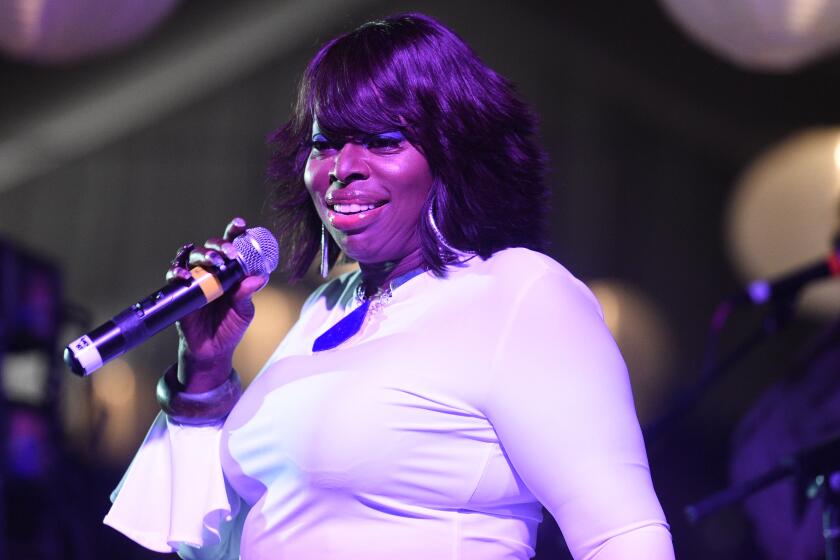Giulini: Life in the Slow Lane
- Share via
MOZART: Symphonies Nos. 39-41; Sinfonia Concertante, K. 297b. Sony Classics SK 47264 & SK 48064. BEETHOVEN: Symphonies Nos. 1 & 7. Sony Classics SK 48236. BRAHMS: Symphonies Nos. 1 & 2. Deutsche Grammophon 435 347-2 & 435 348-2. Carlo Maria Giulini, conducting various orchestras.
Recently, upon being told that Giulini had just released a recording that included Mozart’s Symphony No. 39 and the Sinfonia Concertante, K297b, a wit remarked, “What, all on one disc?” Such is the well-earned reputation of the conductor’s recordings these days, notoriously slow in tempo and getting slower.
In this latest batch of five symphonic recordings, even the most avid of admirers must admit that sometimes the snail’s pace of Giulini’s choosing doesn’t sit well with the music at hand and is, in fact, in tension with the music.
It must also be said, however, that the 79-year-old conductor often makes these slow tempos work against the odds and, in two cases, turns in truly compelling performances.
His recent Mozart is hit and miss. In the delicate, lyrical 39th Symphony and in the ceremonious, rhythmical “Jupiter,” Giulini’s readings--with a colossal-sounding Berlin Philharmonic--seem oversized, like poetry announced through stadium loudspeakers.
The 39th comes off most curiously, almost as if it were being played underwater; the sculpted and energetic “Jupiter” becomes far too sedate. But even in these works Giulini’s approach yields admirable touches--warm and gentle phrasing, for instance (not to be taken for granted nowadays) and careful detailing.
The 40th Symphony, it turns out, thrives in this slow and gentle environment. Here is a reading of subdued melancholy and floating lines rather than of tragedy.
This proves true as well in the Sinfonia Concertante, where the four elegant soloists from the Berlin orchestra have plenty of room for gracious, relaxed nuance. Giulini’s accompaniment, more sprightly than his other Mozart, is amiably integrated.
Giulini and Brahms have always been the perfect match, and they remain so in the conductor’s recent recordings of the Symphonies Nos. 1 and 2 with the Vienna Philharmonic.
Again, tempos are glacial, yet there is never a feeling of lethargy or heaviness.
The music builds of its own accord, gaining in momentum what it has lost in tempo. The Vienna Philharmonic rises to the drawn-out challenge spectacularly.
If only the same ensemble could have been contracted for Giulini’s Beethoven cycle on Sony, the first release of which features the First and Seventh Symphonies with an orchestra, new to recordings, called the La Scala Philharmonic.
Described as assembled “from a range of leading players” in the Scala pit orchestra and “other orchestras as well,” the Philharmonic’s playing is solid enough but not up to the grand and unusual demands of a Giulini. The conductor’s interpretations, predictably a bit too lax in the perky First, and powerful, rugged and spacious in the Seventh, seem wasted on this second-rate ensemble.
One remembers Giulini’s recordings of the “Eroica” and “Pastoral” with our own L.A. Philharmonic, and longs for a reunion.
More to Read
The biggest entertainment stories
Get our big stories about Hollywood, film, television, music, arts, culture and more right in your inbox as soon as they publish.
You may occasionally receive promotional content from the Los Angeles Times.









